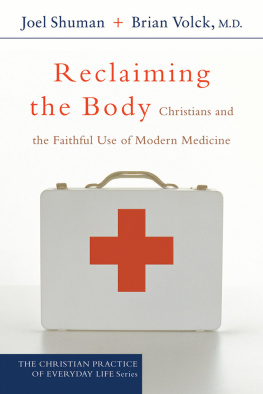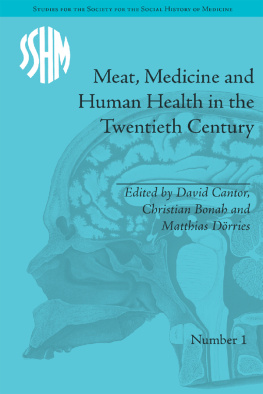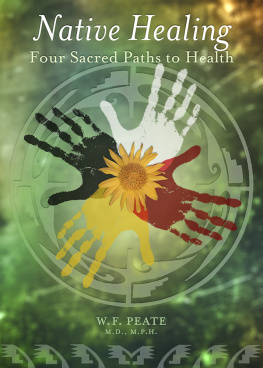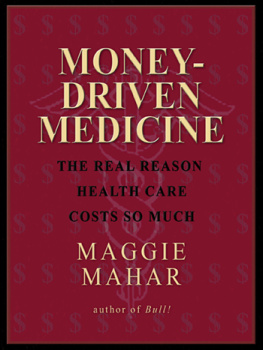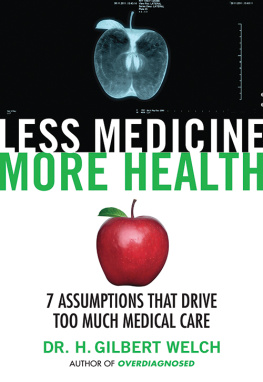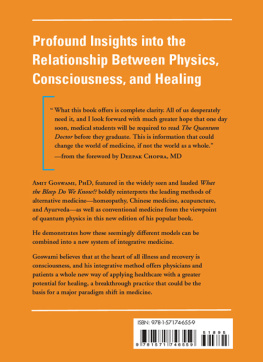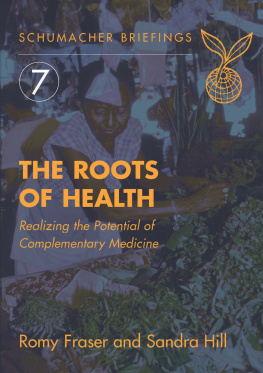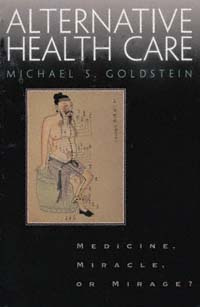Joel Shuman - Reclaiming the Body: Christians and the Faithful Use of Modern Medicine
Here you can read online Joel Shuman - Reclaiming the Body: Christians and the Faithful Use of Modern Medicine full text of the book (entire story) in english for free. Download pdf and epub, get meaning, cover and reviews about this ebook. year: 2006, publisher: Baker Publishing Group, genre: Religion. Description of the work, (preface) as well as reviews are available. Best literature library LitArk.com created for fans of good reading and offers a wide selection of genres:
Romance novel
Science fiction
Adventure
Detective
Science
History
Home and family
Prose
Art
Politics
Computer
Non-fiction
Religion
Business
Children
Humor
Choose a favorite category and find really read worthwhile books. Enjoy immersion in the world of imagination, feel the emotions of the characters or learn something new for yourself, make an fascinating discovery.
- Book:Reclaiming the Body: Christians and the Faithful Use of Modern Medicine
- Author:
- Publisher:Baker Publishing Group
- Genre:
- Year:2006
- Rating:5 / 5
- Favourites:Add to favourites
- Your mark:
- 100
- 1
- 2
- 3
- 4
- 5
Reclaiming the Body: Christians and the Faithful Use of Modern Medicine: summary, description and annotation
We offer to read an annotation, description, summary or preface (depends on what the author of the book "Reclaiming the Body: Christians and the Faithful Use of Modern Medicine" wrote himself). If you haven't found the necessary information about the book — write in the comments, we will try to find it.
Joel Shuman: author's other books
Who wrote Reclaiming the Body: Christians and the Faithful Use of Modern Medicine? Find out the surname, the name of the author of the book and a list of all author's works by series.
Reclaiming the Body: Christians and the Faithful Use of Modern Medicine — read online for free the complete book (whole text) full work
Below is the text of the book, divided by pages. System saving the place of the last page read, allows you to conveniently read the book "Reclaiming the Body: Christians and the Faithful Use of Modern Medicine" online for free, without having to search again every time where you left off. Put a bookmark, and you can go to the page where you finished reading at any time.
Font size:
Interval:
Bookmark:


2006 by Joel Shuman and Brian Volck
Published by Brazos Press
a division of Baker Publishing Group
P.O. Box 6287, Grand Rapids, MI 49516-6287
www.brazospress.com
Ebook edition created 2012
All rights reserved. No part of this publication may be reproduced, stored in a retrieval system, or transmitted in any form or by any meansfor example, electronic, photocopy, recordingwithout the prior written permission of the publisher. The only exception is brief quotations in printed reviews.
ISBN 978-1-4412-3179-6
Library of Congress Cataloging-in-Publication Data is on file at the Library of Congress, Washington, DC.
Scripture marked NRSV is taken from the New Revised Standard Version of the Bible, copyright 1989, Division of Christian Education of the National Council of the Churches of Christ in the United States of America. Used by permission. All rights reserved.
Scripture marked RSV is taken from the Revised Standard Version of the Bible, copyright 1952 [2nd edition, 1971] by the Division of Christian Education of the National Council of the Churches of Christ in the United States of America. Used by permission. All rights reserved.
Scripture marked KJV is taken from the King James Version of the Bible.
The internet addresses, email addresses, and phone numbers in this book are accurate at the time of publication. They are provided as a resource. Baker Publishing Group does not endorse them or vouch for their content or permanence.
Contents
Introduction
 In a literature and medicine course one of us teaches to fourth-year medical students, classes begin with a writing prompt relevant to the book or story to be discussed. Like their teachers, our students punctuate more pedestrian efforts with moments of penetrating insight, however unintentional. One prompt, now discarded, asked them to describe how and with whom they hoped to die. Almost without exception, their essays were the antithesis of what theyd witnessed in the hospital. Death takes them placidly, painlessly, and almost by surprise, without time for suffering or unwanted reflection, though beloved friends and family happen by in time to receive touching farewells. Intrusive technological fixes are nowhere to be found, and bodies never falter before the mind orperhaps more importantlythe will. Able-bodied octogenarians pass an idyllic afternoon of tennis, terrific sex, and fine wine, then sleep between soft sheets, to be discovered next morning, smiling and dead. Like pornography, its thoroughly utopian and clich-ridden.
In a literature and medicine course one of us teaches to fourth-year medical students, classes begin with a writing prompt relevant to the book or story to be discussed. Like their teachers, our students punctuate more pedestrian efforts with moments of penetrating insight, however unintentional. One prompt, now discarded, asked them to describe how and with whom they hoped to die. Almost without exception, their essays were the antithesis of what theyd witnessed in the hospital. Death takes them placidly, painlessly, and almost by surprise, without time for suffering or unwanted reflection, though beloved friends and family happen by in time to receive touching farewells. Intrusive technological fixes are nowhere to be found, and bodies never falter before the mind orperhaps more importantlythe will. Able-bodied octogenarians pass an idyllic afternoon of tennis, terrific sex, and fine wine, then sleep between soft sheets, to be discovered next morning, smiling and dead. Like pornography, its thoroughly utopian and clich-ridden.
Before the rise of biomedical science, Westerners imagined death differently. The thought of dying without careful preparation terrified the average Christian. Something more than personal comfort or pain was at stake: the fate of the soul itself. By way of literary illustration, consider Hamlets fathers ghost, demanding revenge upon Claudius, not only for stealing his throne through murder, but for doing so as he slept:
Cut off even in the blossoms of my sin,
Unhousled, disappointed, unaneld,
No reckning made, but sent to my account
With all my imperfections on my head.
O, horrible! O, horrible, most horrible! (act 1, scene 5)
Later, with perfect opportunity to slay Claudius alone in prayer, Prince Hamlet reconsiders, sheathing his sword for a more opportune moment:
When he is drunk asleep, or in his rage,
Or in th incestuous pleasure of his bed,
At game a-swearing, or about some act
That has no relish of salvation int. (act 3, scene 3)
Somewhere between Shakespeare and the medical school class of 2005, the mental furnishings of death changed. Now is not the time to review the history of this shift or examine sixteenth-century theological debates over extreme unction, sacramental confession, and judgment. Were more interested in the medical students who are, we suspect, not much different from other North Americans on the fashionable side of forty. Unlike their nonmedical colleagues, however, these students are quite familiar with the machinery of hospitalized death, which makes their studied silence about technology eerie. Are we reading too much into their death fantasies to see a devils bargain with their technologized profession? Medicine and its machines will keep their arteries clean, joints limber, and genitalia perky until that inevitable moment of decline, then suddenly step back, keeping a respectful distance while the vigorous pass mildly away. Religious conviction, or its more consumer-friendly cousin, spirituality, rarely makes a show in these dreamy deaths. A single student marveled at the prospect of finally leaving my body, a startling comment for someone entering a profession dedicated to body maintenance and repair. We suspect no one in the class noted how far from the Nicene Creeds resurrection of the body his statement fell, but shared religious conviction is too much to suppose in a pluralistic society, and theological languageas distinguished from statements of personal beliefis no more welcome in medical schools than are seminars in chiropractic.
This book is an attempt to reframe that relationship, to ask if theology as lived in the church has something to offer anyone who has had or will have an encounter with the medical establishment. What if, for instance, the things we say in church about God, the body, or our relationships and responsibilities to each other have real consequences beyond church doors? What if they were more than mere whistling in the dark, private comforts in a heartless world?
We are not interested in current fads regarding spirituality and belief as health-and-wellness techniques. One of us has already coauthored a book critiquing this phenomenon.
Perhaps we would do better by saying more about what this book is not. This is not a standard book of medical ethics seen from a Christian perspective. We will not be considering individual medical dilemmasabortion, euthanasia, stem cell research, and so forthexamining them philosophically and arriving at recommended responses. In fact, as we argue in chapter 6, this individualized approach gets things exactly wrong. Nor are we endorsing an alternative Christian medical establishment, complete with hospitals, machines, and friendly staff all operating under the official fish-symbol seal of approval. We return instead to the theological traditions of the church in order to reimagine the relationship between Christians and the enterprise named medicine. Thus, our approach, when we turn to practical matters, will be necessarily more suggestive than prescriptive, although to those who assume the medical industry gets it right, our stories and illustrations will seem annoyingly out of bounds. In any case, those hoping to find a five-year plan for the re-Christianizing of medicine must look elsewhere.
But, before we get to the stories we offer as alternatives to the constricted way most of us now imagine medicine and health, we attempt to lay some groundwork, drawing on the central theological convictions of historical Christian tradition. By theology, we mean the ways in which those communities gathered to follow and participate in the life of Christ have understood Gods identity, action, and powerful presence among Gods people. By ecclesiology, we mean the ways in which those gathered peoples have understood how to be church, to be gathered by Christ in order to live differently and more fully. In a world more comfortable with individual seekers pursuing private spiritualities, such communal understandings may seem peculiar at first, even unnatural. Given the propensity for humans to envision themselves each as the psychic center of the universe, community may well be unnatural, but it is the way the church hands on to us the traditions it received from those who came before. The word tradition comes from a Latin root (tradere) meaning to hand over. The word treason has the same origin. We have a choice: to receive and pass along what has been carefully handed down from generation to generation to us, or to hand it over to those who care nothing for the past or the people we are. Twenty-first-century Westerners have been taught to see tradition as confining and undemocratic. In G. K. Chestertons words, however, tradition is democracy extended over time, a practice that recognizes that we, in our particular moment in history, cannot claim a monopoly on truth.
Next pageFont size:
Interval:
Bookmark:
Similar books «Reclaiming the Body: Christians and the Faithful Use of Modern Medicine»
Look at similar books to Reclaiming the Body: Christians and the Faithful Use of Modern Medicine. We have selected literature similar in name and meaning in the hope of providing readers with more options to find new, interesting, not yet read works.
Discussion, reviews of the book Reclaiming the Body: Christians and the Faithful Use of Modern Medicine and just readers' own opinions. Leave your comments, write what you think about the work, its meaning or the main characters. Specify what exactly you liked and what you didn't like, and why you think so.

